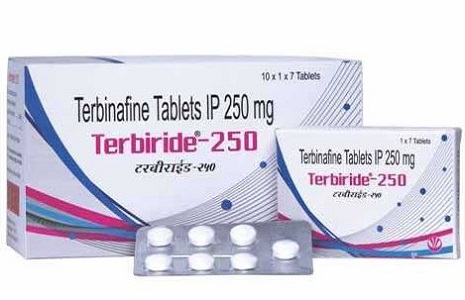Nikhil Prasad Fact checked by:Thailand Medical News Team Jun 14, 2024 1 year, 8 months, 3 days, 9 hours, 27 minutes ago
Cancer-News: Colorectal cancer is one of the most aggressive and deadly forms of cancer, ranking third in terms of incidence worldwide. Despite advancements in treatment, the prognosis for metastatic colorectal cancer remains poor, with less than 20% of patients surviving beyond five years. Researchers are constantly searching for new, more effective therapies to combat this devastating disease. One surprising potential candidate is terfenadine, an old antihistamine medication originally used to treat allergies. This
Cancer News report explores how terfenadine might offer new hope in the fight against colorectal cancer.
 How An Allergy Medicine Could Fight Colon Cancer
The Role of Histamine in Cancer
How An Allergy Medicine Could Fight Colon Cancer
The Role of Histamine in Cancer
Histamine is a chemical involved in immune responses and is known for its role in allergic reactions. However, it also plays a part in the development and progression of certain cancers, including colorectal cancer. Histamine operates through receptors on cell surfaces, with the histamine H1 receptor (H1R) being particularly significant in colorectal cancer. Cancer cells often show high levels of these receptors, which can drive tumor growth and spread.
Terfenadine: An Old Drug with New Potential
Terfenadine was once a popular antihistamine used to treat allergies, but it was withdrawn from the U.S. market due to serious side effects, including heart problems. It is however available as a common and cheap antihistiamine that is often sold as an OTC drug in many parts of the world. Researchers have discovered that terfenadine may have powerful anticancer properties. By targeting and blocking the H1 receptor, terfenadine could potentially inhibit cancer cell growth and induce cancer cell death.
How Terfenadine Works Against Cancer
Researchers from Keimyung University and CHA University in South Korea investigated the effects of terfenadine on human colorectal cancer cells, specifically the HCT116 cell line. They used various laboratory techniques to uncover how terfenadine affects these cancer cells both in test tubes and in live animals.
In the Lab: Killing Cancer Cells
The team found that terfenadine significantly reduced the viability of colorectal cancer cells. It achieved this by blocking the H1 receptor, which disrupted critical signaling pathways within the cells. This disruption led to a series of events that culminated in apoptosis, or programmed cell death.
Apoptosis is a natural process that helps the body get rid of damaged or unnecessary cells. In cancer, however, this process is often defective, allowing cancer cells to survive and proliferate unchecked. Terfenadine restored apoptosis in the colorectal cancer cells by affecting the balance between two types of proteins: pro-apoptotic proteins that promote cell death and anti-apoptotic proteins that prevent it. By tipping the balance in favor of the pro-apoptotic proteins, terfenadine triggered the death of cancer cells.
Key Mechanisms: Bax, Bcl-2, and Cytochrome c
One of the critical findings was how terfenadine influenced the proteins Bax and Bcl-2. Bax promotes apoptosis, while Bcl-2 prevents it. Terfenadine increased Bax levels and decreased Bcl-2 levels, leading to the release of cytochrome c from the mitochondria, the energy powerhouses of the cell. This release activated a cascade of enzymes called caspases, which are essential for executing apoptosis.
Blocking Cancer Growth: STAT3 Signaling
Another crucial aspect of the study was the impact of terfenadine on STAT3, a protein that supports cancer cell growth and survival. STAT3 is often overactive in cancers, helping them to thrive. Terfenadine was shown to inhibit the activation of STAT3, thereby reducing the expression of genes that promote cell survival and proliferation, such as cyclins and survivin.
Real-World Evidence: Tumor Reduction in Mice
To test the effects of terfenadine in a living organism, researchers implanted human colorectal cancer cells into mice, creating a model to study tumor growth. The mice were then treated with terfenadine. Remarkably, terfenadine significantly slowed the growth of the tumors without causing noticeable side effects, suggesting it could be a safe and effective treatment option.
Conclusion: A New Hope for Colorectal Cancer Treatment
The study concluded that terfenadine induces apoptosis and suppresses tumor growth through multiple pathways, including the inhibition of STAT3 signaling. These findings support the idea that repurposing old drugs like terfenadine could offer new therapeutic strategies for colorectal cancer.
While more research and clinical trials are needed to confirm these results in humans, the potential of terfenadine to serve as an anticancer agent is promising. This study not only sheds light on a novel use for an old drug but also opens the door for further exploration of antihistamines in cancer therapy.
Final Thoughts
The journey from allergy medicine to cancer treatment highlights the innovative ways scientists are repurposing existing drugs to combat serious diseases. As research continues, terfenadine and similar medications could become valuable tools in the ongoing battle against cancer, offering hope to patients and families affected by this challenging disease.
The study findings were published in the peer reviewed journal: Frontiers in Pharmacology.
https://www.frontiersin.org/journals/pharmacology/articles/10.3389/fphar.2024.1418266/full
For the latest
Cancer News, keep on logging to Thailand Medical News.
Read Also:
https://www.thailandmedical.news/news/apolipoprotein-a-i-as-a-key-marker-in-colorectal-cancer-prognosis
https://www.thailandmedical.news/news/new-hope-for-colorectal-cancer-treatment-traditional-chinese-medicine-takes-the-spotlight
https://www.thailandmedical.news/news/metformin-targets-colorectal-cancer-cell-growth-via-mirna-regulation
